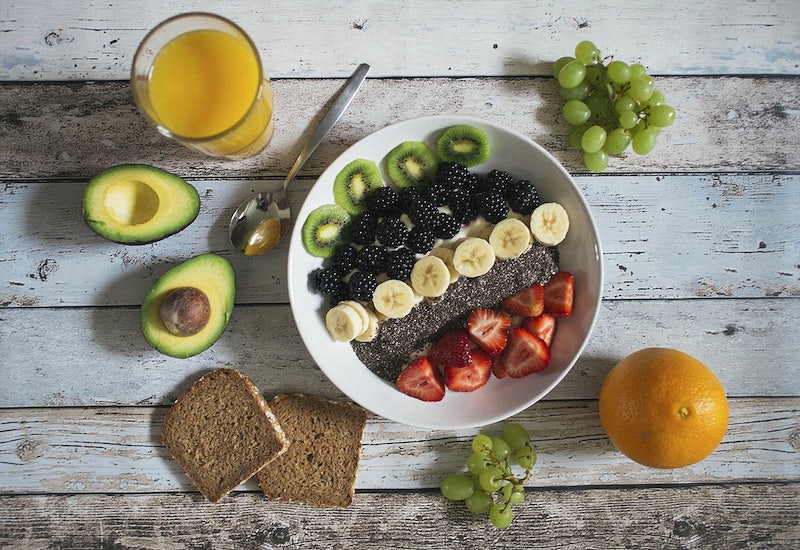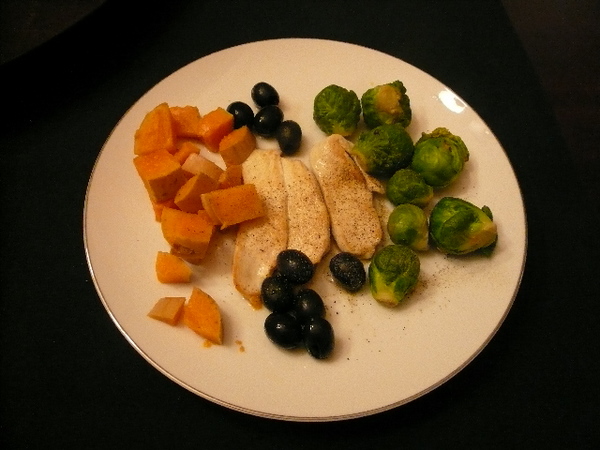A nutritious and balanced diet should never have to lack in flavour or variety. Low carb veggies offer a delicious and healthy alternative to typical starchy sides, keeping the flavour and adding much-needed nutrition to your meals. Learn how low carb veggies can benefit your diet and some delicious ways to incorporate them into meals.
1. Fuel Up with Flavorful Low-Carb Veggies
The low-carb dieter’s dilemma: how do you stay full and energized eating fewer carbs? The answer may be found in the wonderful world of flavorful, nutrient-packed vegetables! Whether you’re just starting to explore your options, or a seasoned healthy eater, take a look at these low-carb vegetables to fill your plate and your belly.
Leafy Greens: All the Benefits
Dark leafy greens bring a concentrated dose of fiber, antioxidants, minerals, and vitamins into your diet in each leafy bite. Sticking to a healthy diet such as Leafy greens of the likes of kale, spinach, collards, and swiss chard are all good options for getting vital nutrients while maintaining a low-carb diet.
Vibrant Veggies of Variety
If you want a bit more variety, fear not! Other low carbohydrate vegetables like cucumbers, zucchini, broccoli, cauliflower, celery, and peppers are tasty options that give meals the boost of crunch and flavor you need. One of the best parts about low-carb veggies is that you can enjoy them raw, steamed, grilled, sautéed, or roasted to your heart’s content. Get creative and mix and match colors and flavors to turn up the heat on the vegetables you adore!
- Cucumber: High in water and low in carbs
- Zucchini: All the crunch, no carb overload
- Broccoli: A classic, yet often overlooked
- Cauliflower: A veggie that’s full of flavor
- Celery: Filler-free
- Bell Peppers: So colorful, so nutritious
Your healthy, low-carb diet needs not be dull and flavorless ! Eating the right low-carb vegetables can help keep you feeling full while still enjoying all the flavors and colors of your favorite fresh produce. Start adding these veggies to your diet today and say hello to flavorful, low-carb filling eats!

2. Tasty Yet Nutritious: Eating Your Veggies Has Never Been Easier
Getting your daily dose of dietary nutrition doesn’t have to be the same boring routine. Eating your veggies can be fun, exciting and more delicious than ever. Here are some tips on how to make eating your veggies a little easier on the palate:
Go For Fresh
- Always choose fresh produce: Local farmer’s markets or grocery stores have wide selections of seasonal veggies to satisfy your plant-based needs.
- Try something new with every trip: Sample some of the stranger looking kale or squash varieties for new flavours and textures.
Innovate In The Kitchen
- Don’t be afraid to experiment in the kitchen with new combinations of ingredients: Mix, chop and purée to discover something new.
- Dressing up vegetables with exciting herbs, spices and condiments can take a dish to the next level – imagine a tangy balsamic vinaigrette complimenting a mix of roasted vegetables.
For The Busy Ones
- Look for pre-cut, frozen or canned veggies for convenience: All have been washed and chopped, making them ready to cook and minimising prep time.
- If you’re a fan of smoothies, then blending frozen vegetables into homemade smoothies can be a great way to sneak in some extra nutrition.

3. What Are Low-Carb Veggies and Why Are They So Good For You?
Low-Carb Veggies are vegetables that contain a low number of carbohydrates, and they are the perfect solution for anyone looking to reduce their carb intake. There’s a wide variety of low-carb veggies available, ranging from leafy greens to root vegetables.
Veggies are full of beneficial vitamins, minerals, and antioxidants that can help improve your overall health. Low-carb veggies are a great way to get a large number of nutrients without using up your daily carb allowance. They are also full of dietary fibre, which can help keep you feeling fuller for longer.
Here are some of the best low-carb veggies to incorporate into your diet:
- Leafy greens– Kale, spinach, collard greens, and swiss chard are all low-carb and contain large amounts of iron and vitamins.
- Cucumber– This versatile vegetable is full of water and dietary fibre, and it’s perfect for adding flavour to salads and wraps.
- Yellow and orange vegetables– Carrots, squash, sweet potato, and pumpkin are packed full of vitamins and low in carbohydrates.
Low-carb vegetables are incredibly beneficial to your health, and they are a great way to get your recommended daily dosage of vitamins and minerals while still following a low-carb diet. Try to include a variety of these vegetables in your diet to make the most of their goodness.
4. Creative Ways to Enjoy Low-Carb Veggies
When it comes to low-carb veggies, there is no end to the creative ways you can enjoy them. Here are four of our favorites:
- Stir-Fried Veggies: For a healthier twist on your favorite takeout meal, try stir-frying low-carb veggies like cauliflower, broccoli, and zucchini. This is an easy way to enjoy the fresh flavors of these veggies without the added carbs.
- Lightly Roasted Veggies: A light roasting of vegetables is a great way to enjoy them without adding too much extra fat or calories. Toss your favorite low-carb veggies in a little olive oil, salt, and pepper, and roast them in the oven at a low temperature until they are tender and golden-brown.
- Grilled Veggies: Grilling is a great way to bring out the natural sweetness of veggies like bell peppers, eggplant, and mushrooms. Marinate them in your favorite vinaigrette for an extra flavorful boost, then toss them on the grill for a few minutes until they are lightly charred and cooked through.
Finally, don’t forget to have a little fun with your low-carb veggies. You can easily whip up some homemade veggie “pizza,” wrap them up in lettuce leaves for a creative twist on tacos, or even spiralize them for a healthier alternative to noodle-heavy dishes. Enjoy!
5. Making Low-Carb Veggies Part of Your Diet – Tips and Tricks
While you’ve made the great decision to embark on a low-carb diet, you will soon have to face the great challenge that is creating dishes packed with nutritious low-carb veggies. You may be wondering how to do this without compromising your diet or your sanity. Take a deep breath – there are some surprisingly simple steps you can take to make veggies a nutritional and interesting part of your diet.
1. Shop around: Shop in different places for the ingredients that make up your low-carb vegetables. A great way to save money is to buy in bulk at farmer’s markets, where healthy veggies can be bought fresh and in season. Explore small ethnic grocery stores for exotic ingredients and efficient online grocery stores for out-of-season fare.
2. Get creative: With a little bit of imagination and creativity, you can transform everyday vegetables into unique and interesting dishes. Try making zucchini noodles as a pasta alternative or cauliflower “rice” as a side dish.
3. Try these tricks:
- Grill or roast vegetables to bring out their natural sweetness.
- Get inventive with herbs and spices.
- Substitute a cheesy sauce on top of veggies to give them a richer flavor.
6. The Health Benefits of Low-Carb Veggies – Why You Should Eat More
Vegetables are some of the healthiest foods available and they play a vital role in any balanced diet. However, some veggies are lower in carbohydrates than others. Here are six reasons why you should eat more low-carb veggies and what health benefits they provide:
1. High Fiber Intake: Low-carb veggies contain a significant amount of dietary fiber, which helps regulate digestion and reduce constipation. Fiber also gives a feeling of satiety and helps reduce hunger levels, which can aid in weight management.
2. Improved Nutrition: Many people who eat a low-carb diet tend to eat more nutrient-dense foods such as low-carb veggies, which helps to provide essential vitamins and minerals that the body needs. This helps improve overall health and reduce the risk of certain diseases.
3. Blood Sugar Regulation: Low-carb veggies help stabilize blood sugar levels because they contain very few digestible carbohydrates. This helps reduce the risk of diabetes and heart disease. The fiber content of veggies can also help slow the absorption of sugars, allowing for a steady release of energy.
4. Improved Digestion: Low-carb veggies are easy on the digestive tract because they are low in fiber and are easier to digest than other foods. This can help reduce digestive issues such as bloating, constipation, and irritable bowel syndrome.
5. Reduced Risk of Diseases: Eating a variety of low-carb veggies can help reduce the risk of certain diseases such as cancer, stroke, and heart disease. Studies have shown that people who eat more low-carb veggies tend to have a lower incidence of these diseases.
6. Weight Loss: Eating more low-carb veggies can help with weight loss because they are low in calories and can help reduce hunger levels, which leads to fewer calories consumed overall. Additionally, the fiber in low-carb veggies helps slow digestion, which is an important factor when it comes to losing weight.
A healthy diet is an important part of maintaining a fit and healthy lifestyle. Adding more low carb veggies to your dishes can be a delicious way to boost your nutrition and give you the energy you need to tackle your day. With the right combination, low carb veggies can be a great addition to any meal. So why not give them a try and reap all of their nutritional benefits?
